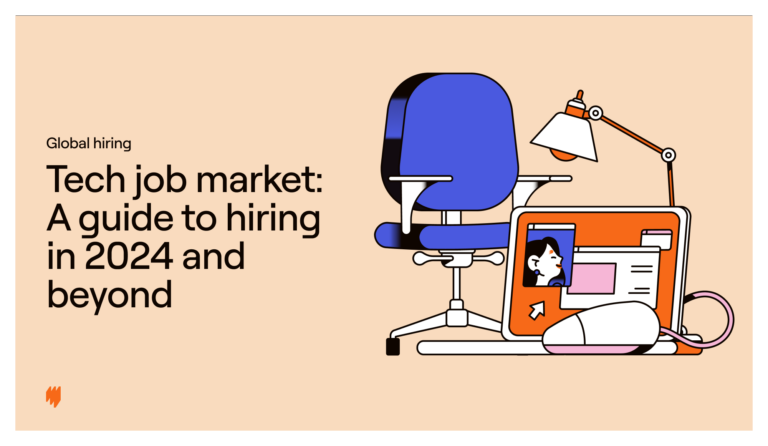The maxim stands true: “With great risk comes great reward.”
But despite our willingness to take risks, putting ourselves in an unpredictable situation is not a simple decision.
The job market is undergoing significant changes, and the traditional office job isn’t the only path to success anymore. Many people are leaving corporate jobs for the thrill of self-employment.
The question is, is it suitable for you?
What is self-employment? An Introduction
A self-employed person is someone who earns money by signing contracts with businesses rather than working for a single employer. They usually don’t receive fixed earnings or wages from a single source because they work for multiple employers.
Self-employed individuals may be skilled in one form of work while also being engaged in other occupations. This includes writers, freelancers, lawyers, insurance agents, and salespeople.
The growing economy provides multiple opportunities for anyone with the energy and desire to establish a business to succeed. Technological improvements have also made it possible to run a profitable business without investing in large infrastructure or other resources.
Self-employment provides unparalleled prospects for success in practically every industry. The Bureau of Labor Statistics estimates that there are now more self-employed Americans than the country had in the previous 15 years.
Self-employment is highly preferred among today’s youth as it provides more flexibility and increases your earning potential.
Benefits of being self-employed
Around 10% (15 million people) of the American workforce are self-employed, and the number has increased by more than one million since 2016. While these figures may appear startling, it’s not difficult to understand why people choose to work for themselves rather than pick up traditional professions.
Flexible lifestyle
Having your own business gives you the flexibility to travel and work in a variety of locales, thus making your work life more flexible. It’s also easy to take a vacation as you don’t need approvals.
This means that there are no constraints on when or for how long a self-employed person can take a holiday. It’s up to you to determine if you have the bandwidth for some time off.
Creative freedom
When you have a self-owned business, you assume responsibility for all of its processes. Business owners are always innovating, taking risks, and seeking new ways to grow their portfolios; In contrast, being employed by a firm limits your independence to make such adjustments and take ownership of the process.
Earning potential
Self-employment offers high earning potential as people have more control over their personal development. Individuals who work for themselves have the flexibility to work long hours on some days, network, and reap the advantages of their efforts. For many people, this is more motivating than receiving a set paycheck.
Challenges faced by self-employed individuals
Being one’s own boss offers great advantages, but it also brings with it multiple risks and problems. Some challenges are common, while others may be specific to a particular industry. Although it’s difficult to get rid of them altogether, there are strategies that can reduce their impact.
Inconsistent income
Working for a huge corporation guarantees consistent, on-time payment, whereas working for oneself does not.
Your income is defined by the amount of business you generate and the willingness of clients to pay for your services. Sure, corporate firms can also go out of business or have layoffs. But having a consistent and reliable income as a one-person business is even more challenging, increasing the risk.
Higher stress levels
Independent employment typically entails less consistency in your daily activities. You have to be adaptable to changing circumstances, which can lead to more stress than working for an employer.
At times, you may be required to undertake duties outside of your skill set. Also, you’re solely responsible for the success or failure of a project, which can increase your stress levels.
Reduce stress by staying organized and developing a clear strategy. The right strategy can set you on the correct path and help you deal with the psychological pressures of self-employment.
Lack of knowledge
In a highly competitive market, advancing in any profession demands a deep understanding of it. Your products and services should be customizable as per the demands of your clients; otherwise, the chance of failure is high.
Self-employed individuals have a lower success rate than those who work for someone else. So knowledge is the key to having an independent organization.
Financial management and planning
Working for yourself can be a dream, but it also demands effective financial management.
Let’s look at some ways to make this simpler:
- Separate your business and personal bank accounts: A business-only account can help you track your income and expenses. Open a business bank or savings account with your Employer Identification Number. If you are a sole proprietor, just start off with a separate personal account.
- Automate your budget: Use various finance planner apps to keep track of your savings and debt payments. Set up automatic transfers to your emergency fund, savings account, retirement account, and so on. You can always change the amount allocated for each depending on your actual earnings.
- Maintain emergency fund: If you’re self-employed, having an emergency fund is crucial. The traditional approach of saving 3-6 months’ pay may no longer be adequate. Given the irregular nature of freelance income and the increased frequency of tax obligations, you may want to have a larger buffer for slow months or unexpected bills.
- Pay your taxes quarterly: If your expected tax burden is more than $1,000, you should file an annual return and pay estimated taxes quarterly. You can also take advantage of tax deductions to lower your tax burden. For an in-depth understanding of tax payments, visit the IRS website.
Tax obligations
Independent contractors work for themselves, which is equivalent to running a small business. As a result, the IRS considers independent contractors to be business entities. This means that you can deduct the most relevant 1099 business expenses from your tax returns.
Tax planning helps independent contractors to wisely pay their taxes. Tax deductions are calculated as percentages of the income taxes owed, reducing the amount of taxes payable. While tax credits are directly reduced from the amount of taxes owed, they can increase or provide a refund even if no taxes are owed.
1099 employee tax deductions are self-managed. So independent contractors are responsible for their freelancer tax deductions.
They can claim several tax deductions, such as
- Educational expenses: Skill development sessions may be essential to the growth of your business. Therefore, educational expenses are eligible for a tax break for self-employment or independent contractor tax deduction.
- Home office expenses: You may have significant home office expenses. So if your house is your primary place of business, calculate independent contractor deductions in this category using a variety of methods.
- Business travel expenses: Business travel is another tax benefit available to self-employed individuals. If you conduct client meetings out of state or attend conferences, claim these expenses as self-employment deductions.
- Start-up costs: Independent contractors are eligible for independent contractor tax benefits in the year of starting their business. However, this tax benefit for self-employed individuals excludes the purchase of equipment or vehicles. As they depreciate, you can subtract them.
- Advertising costs: The independent contractor tax-deductible list also includes money spent on company promotion. Advertising costs include both physical or traditional advertising and internet advertising. They can be deducted as self-employment expenses.
- Insurance expenses: Business insurance protects businesses against losses or unexpected costs. Even clients may request an insurance certificate before executing a contract with an independent contractor. So business insurance can be deducted as an independent contractor expense.
- Charitable contributions: You must maintain track of any minor donations made over the year. These tiny payments build up to a significant independent contractor deduction.
Striking the right work-life balance
When you work for yourself, it’s easy to fall into the trap of grinding away every day. You need to work hard for the opportunity to be your boss. However, your mental and physical health also needs attention.
Here are some recommendations for keeping a healthy work—life balance for running your own business:
Plan your schedule
One of the benefits of being self-employed is that you can choose when and how you work. However, this also requires you to be diligent and organized with your time. To avoid procrastination, diversions, and overwork, make a timetable and stick to it.
Avoid over-committing by prioritizing chores and setting reasonable goals. Take regular pauses to avoid burnout. Calendars, timers, and apps can all help you track your work and meet deadlines.
Know when to say “No”
If a potential client asks you to do a last-minute job when your plate is already full, you can politely decline. This will allow you to devote more time to activities you enjoy rather than rushing through projects because you feel obligated to.
Define your boundaries
Another disadvantage of being self-employed is that you may have to manage many clients, projects, or positions. This can make it difficult to separate your professional and personal lives, particularly if you work from home.
To avoid stress, you can set up a dedicated workspace, switch off notifications, and avoid accessing your emails or messages outside of business hours.
Leverage digital tools to support admin work
Feeling overloaded with administrative tasks as a self-employed professional? You’re not alone!
Most self-employed individuals struggle to manage chores like global payments, tax compliance, and navigating the complexities of hiring overseas talent.
That’s where service providers like Multiplier can be a valuable resource. Multiplier can act as your virtual HR and Legal team, handling tasks that consume your valuable time.
You can use Multiplier for
- Effortless global expansion: Hire top people from anywhere in the world without the headache of establishing foreign legal companies. Multiplier’s global network and legal skills help manage everything from finding resident directors to processing payroll and taxes.
- Simplified global payments: Avoid the difficulties of cross-border transactions. Multiplier administers payments through established legal companies, ensuring that foreign payments are easy and compliant.
- Tax compliance: Use experienced legal professionals to handle all statutory payments, ensuring that you stay on the right side of legislation. You can concentrate on growing your business with peace of mind.
- Reduced costs and time spent: Avoid the high fees and months-long wait times associated with setting up overseas entities. Multiplier streamlines the process, saving you both time and money.
Multiplier’s team of in-country experts is available round the clock for ongoing assistance and guidance. With their help, you can face administrative challenges with confidence and free up critical time to focus on building your business.
Keeping the dream alive
Self-employment is very appealing to individuals seeking job flexibility and income stability. It offers benefits like creative freedom and high earning potential. But you’ll also have to manage challenges like income inconsistency and stress.
But we live in an age with multiple resources available to help you navigate these challenges. Tools like Multiplier can streamline administrative tasks like global payments, hiring, and tax compliance, freeing up valuable time to focus on achieving your entrepreneurial goals.
Explore the help available today and empower yourself to thrive in the exciting world of self-employment and entrepreneurship.

Binita Gajjar
Content Marketing Lead
Binita is a Content Marketing Lead at Multiplier





